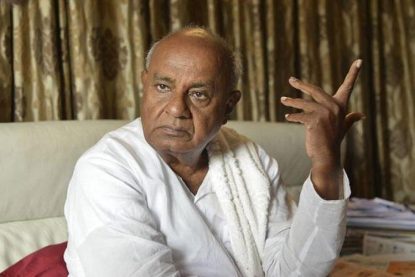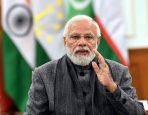
Non-invasive therapy could remotely kill cancer cells
Team Udayavani, Jan 16, 2018, 3:50 PM IST

Los Angeles: Scientists have developed a system that can non-invasively and remotely control immune cells so that they recognise and kill cancer cells. There is a critical need to non-invasively and remotely manipulate cells at a distance, particularly for translational applications in animals and humans, researchers said.
They developed an innovative approach to use mechanogenetics – a field of science that focuses on how physical forces and changes in the mechanical properties of cells and tissues influence gene expression – for the remote control of gene and cell activations.
The team from University of California, San Diego in the US used ultrasound to mechanically perturb T cells, and then converted the mechanical signals into genetic control of cells. They show how their remote-controlled mechanogenetics system can be used to engineer chimeric antigen receptor (CAR)-expressing T cells that can target and kill cancer cells.
The engineered CAR-T cells have mechano-sensors and genetic transducing modules that can be remotely activated by ultrasound via microbubble amplification. “CAR-T cell therapy is becoming a paradigm-shifting therapeutic approach for cancer treatment,” said Peter Yingxiao Wang, professor at the UC San Diego.
“However, major challenges remain before CAR-based immunotherapy can become widely adopted. For instance, the non-specific targeting of CAR-T cells against nonmalignant tissues can be life-threatening,” said Wang.
“This work could ultimately lead to an unprecedented precision and efficiency in CAR-T cell immunotherapy against solid tumors, while minimizing off-tumor toxicities,” said Wang. Researchers found that microbubbles conjugated to streptavidin can be coupled to the surface of a cell, where mechanosensitive Piezo1 ion channels are expressed.
Upon exposure to ultrasound waves, microbubbles vibrate and mechanically stimulate Piezo1 ion channels to let calcium ions inside the cell. This triggers downstream pathways, including calcineurin activation, NFAT dephosphorylation and translocation into the nucleus.
The nucleus-translocated NFAT can bind to upstream response elements of genetic transducing modules to initiate gene expression of chimeric antigen receptor (CAR) for the recognition and killing of target cancer cells.
Udayavani is now on Telegram. Click here to join our channel and stay updated with the latest news.
Top News
Related Articles More

What role does genetics play in breast cancer? How can genetic testing help with early breast cancer diagnosis?

Father’s diet can affect anxiety in sons, metabolism in daughters: Study in mice finds

Low back pain, depression, headaches main causes of poor health: Study

Surgical options for Parkinson’s disease

Breast cancer to cause a million deaths a year by 2040: Lancet commission
MUST WATCH
Latest Additions

Election Commission Flags 189 Cases of Major Electoral Offences in Karnataka

Deve Gowda questions Rahul Gandhi’s wealth redistribution proposal

A journey into Van Gogh’s world!

Woman hurls toilet cleaner on man during his pre-wedding ceremony in UP

JP Hegde promises livelihood boost for fishermen and farmers























